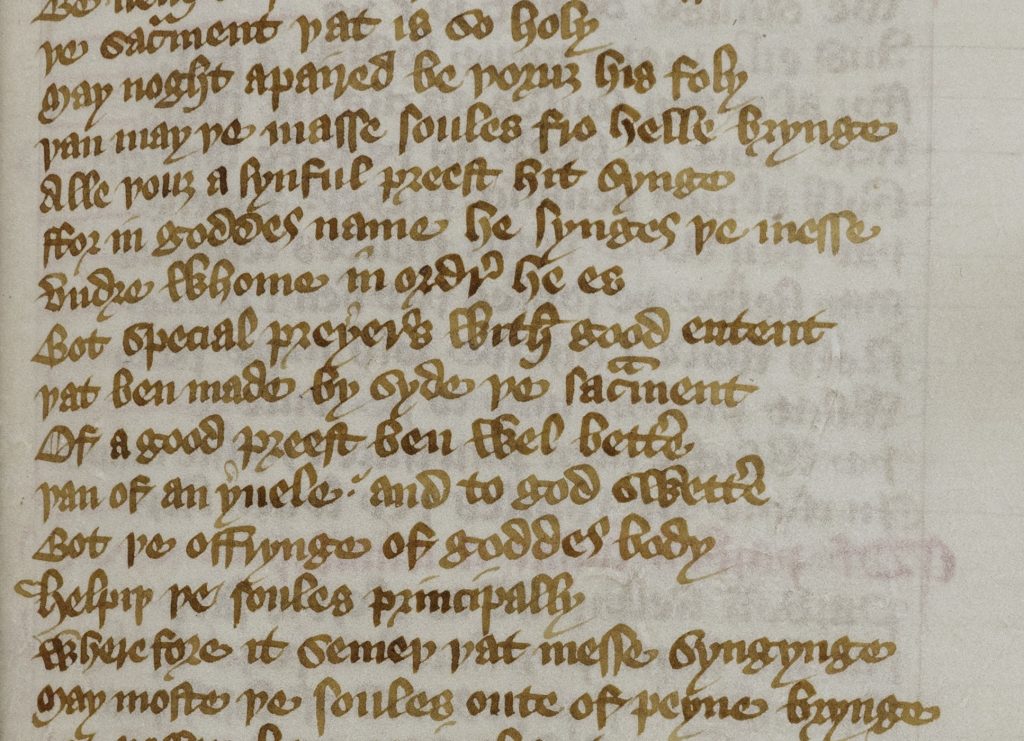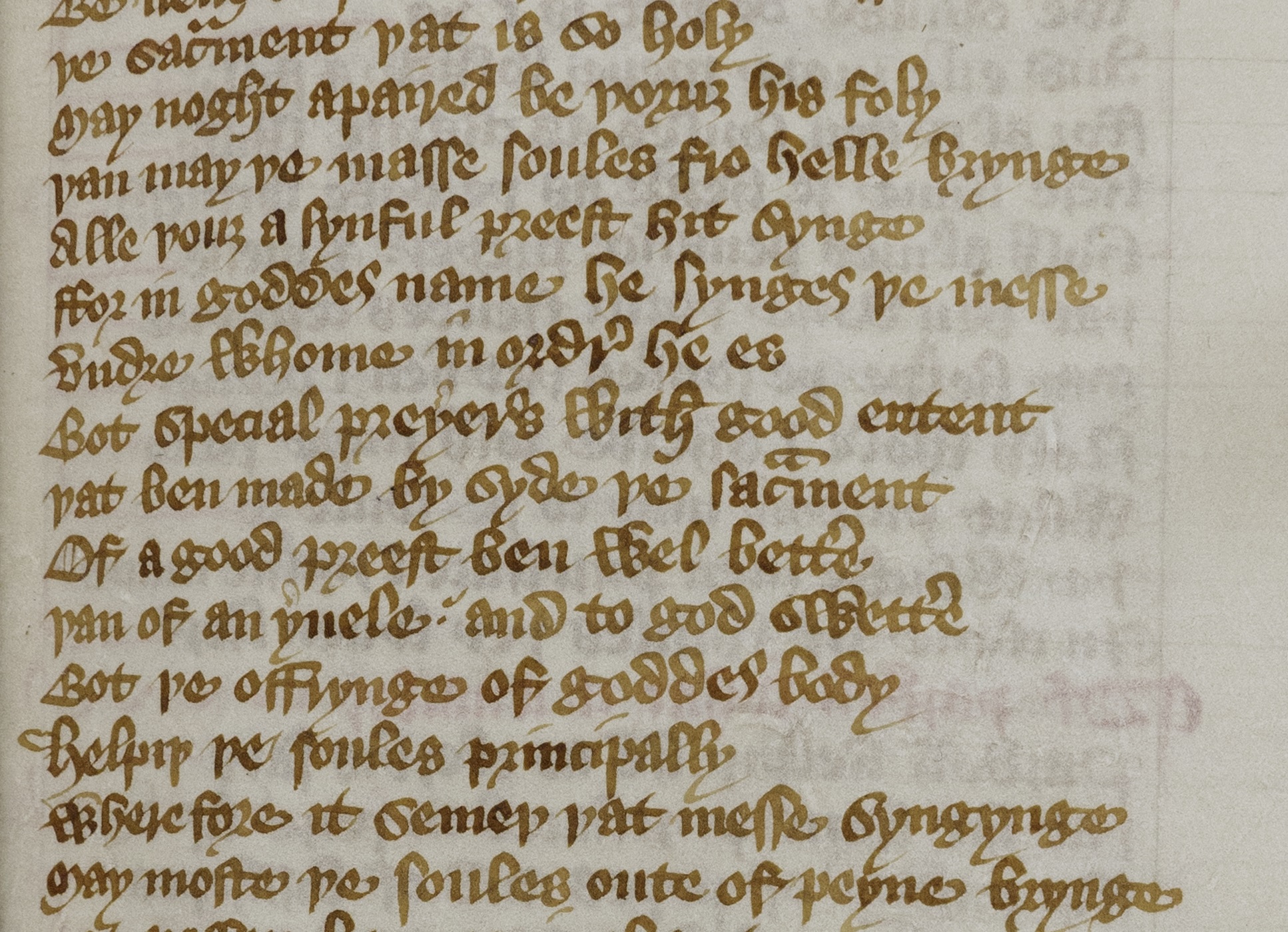Curriculum Connections: Gender, Religion, and Literature; Image and Text Analysis, Manuscript Studies, Middle English Literature
This Skills Lesson accompanies the Collection Essay Contexts for the Book of Margery Kempe.
Materials – Available for Download in the Downloads Tab:
- A copy of the Skills Lesson
- Instructor answer key for the Skills Lesson
Today we will read from a medieval manuscript at the Newberry Library to help us understand this moment in the Book of Margery Kempe:
One day as this creature was hearing her Mass, a young man and a good priest holding up the sacrament in his hands over his head, the sacrament shook and flickered to and fro as a dove flickers with her wings…
I.20; p. 446 in Norton
One manuscript in the Newberry Library records a copy of a very popular Middle English poem called the Prick of Conscience. This anonymous text is full of painful reminders of humanity’s dreadful state and dreadful future (being tormented in hell) if they don’t live as better Christians on earth, so that’s why it’s called “prick of conscience.” Because this poem was written in Middle English (aka the ‘vernacular’ aka the ‘vulgar tongue’), the Prick of Conscience would have been accessible to many more common people than a Latin text because they could listen to it read aloud or read it themselves. A scribe wrote this copy of the poem around the year 1400, thirty years before Margery wrote her Book.
We will focus on a short piece of the Prick of Conscience which instructs its readers in how to think about going to Mass and the performance of the sacrament there. In this section you will transcribe a medieval text to record what is written on the page; translate from Middle English into modern English; think about Margery’s vision of the fluttering Eucharist in light of this passage
Before you start…. some tips for transcribing:
- þ? ʒ? Watch out for these two Middle English letters that we do not use anymore, thorn and yogh. Thorn makes the “th” sound, and looks like this: þ. Yogh can make an airy, almost hissing “k” sound, or a “y” sound: ʒ. Words in Modern English with a silent “gh” used to have a “ʒ”.
- If you don’t understand a word or sentence, don’t worry. After you’ve transcribed, try to read the text aloud, sounding out the words. Middle English was written according to how words sounded, and not according to spelling rules. Definitions of some difficult words are given for you. If you need help, you can consult the free Middle English Dictionary here.
Let’s translate and transcribe the first three lines together. Study them side by side.
Clik on the images for high-resolution copies.
Transcription:
Also a preest þouʒ he be
Synful and oute of charite
He is goddes ministre and holy chirches
þat þe sacrament of þe autere Worches
Translation:
Also, a priest, though he may be
Sinful and ‘out of charity’,
He is the minister of God and the holy church’s
who works [performs] the sacrament of the altar.
Look up “charity” in the Middle English Dictionary for possible meanings in this context. Now, keep going! Let’s pick up a few lines later.

*“Apaired” means damaged, spoiled, or impaired.
“Yuele” is evil, spelled in a very medieval way.
A worksheet for students to transcribe and translate this passage appears in the Downloads tab.
- Connect this passage to back to the narrative of a vision of the fluttering Host raised at Mass. Why would Margery want to mention to her readers that the young priest was ‘good’?
- How does Margery describe her interacting with “good priests” or alternatively bad priests all “out of charity” elsewhere in the Book? Find evidence in the text.
Download the following materials below:
- A copy of the Skills Lesson
- Instructor answer key for the Skills Lesson





